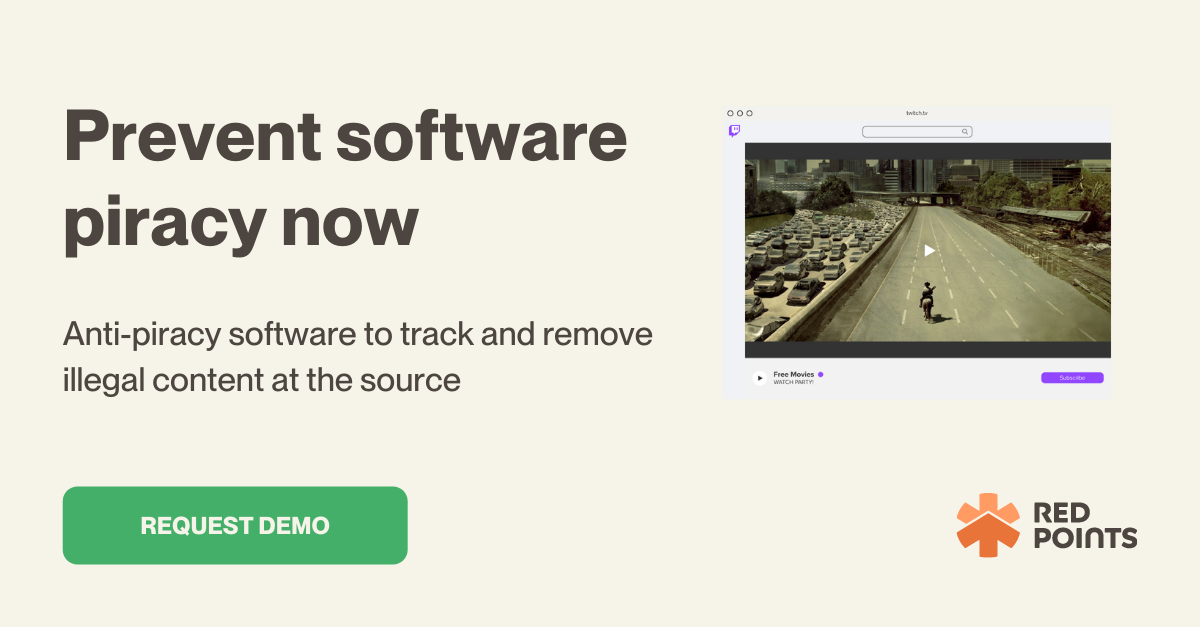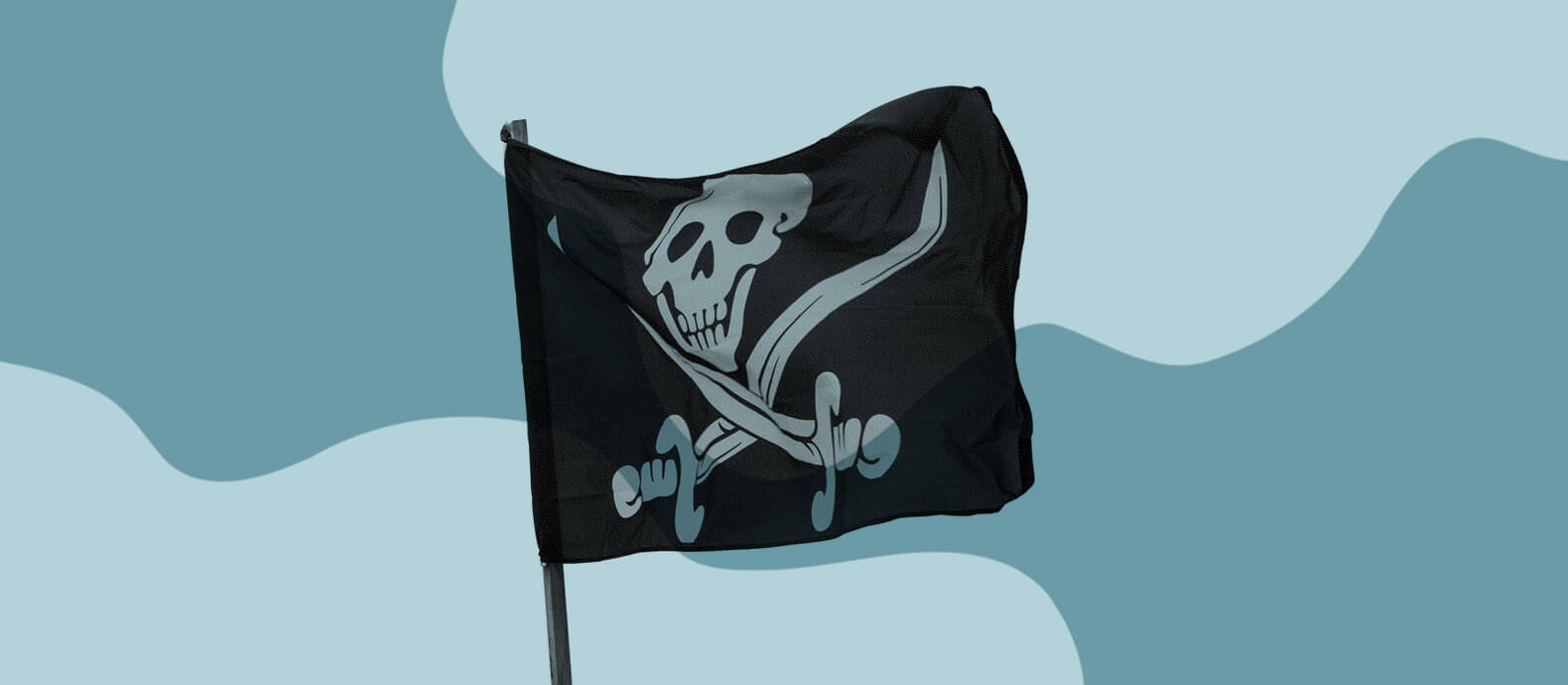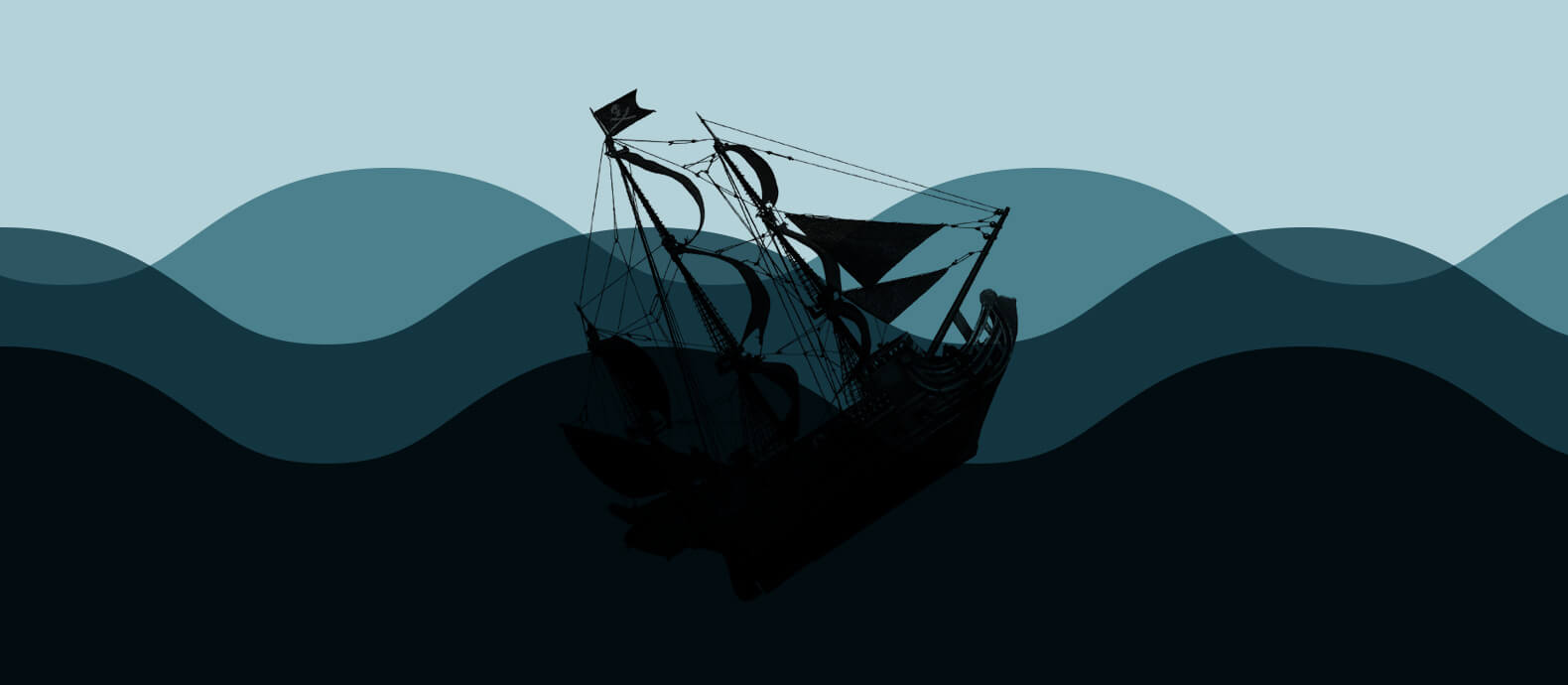We will look at the impact of piracy on the economy, customer experience, brand image, and society, and explain why content owners can’t afford to lose the battle with online piracy.
Why is online piracy a problem?
Online piracy is a problem in every industry selling unique content, from the film, television, and music industry, to publishing, software, and more. There are hundreds of illegal streaming sites where users can download stolen movies, songs, books, and countless other unique forms of content. If a company owns its intellectual property and sells unique content, chances are it’s being stolen and replicated somewhere online.
While some argue digital piracy can be helpful for word-of-mouth marketing, many studies have shown the negative impacts far outweigh the positives. The impact of online piracy is not only economic but has a great social cost to all the individuals involved in these industries.
Digital piracy is a problem that must be fought at every level in order to protect industries as a whole, as well as individual creators and company employees.
What is the economic impact of piracy
Piracy has a negative economic impact that trickles all the way down from the content creator and host, to the employees of affected companies. First and foremost, industries take massive revenue hits annually due to digital piracy.
The music industry, for example, loses a staggering $2.7 billion in revenue annually, and the impact of piracy affects creators, companies, and employees alike. Creators also lose millions in royalties, disproportionately affecting emerging artists who don’t have a mega-following or established legal team to address digital piracy.
What many don’t realize about the impact of piracy is that its catastrophic impact affects individual employees within these industries as well. In the music industry alone, 70,000 US jobs are lost annually due to the revenue lost from digital piracy. This is a problem that affects everyone within these industries, and it is only becoming a larger problem on a global scale.
Using recent data and trends, the International Chamber of Commerce predicts that the global amount of revenue lost could skyrocket to $991 Billion by 2022. Every business, creator, employee, and customer will be affected by piracy in some way on a global level. Existing businesses need to take the proper steps now to ensure they are prepared for this continued increase in piracy in the coming months and years.
Piracy affects customer experience
Because quality control does not exist on pirated content, customer experience and satisfaction are greatly diminished. Most pirated content is not up to the same quality and standards as the original content, with audio interruptions, distorted image quality, and more.
If consumers are only experiencing the pirated content, they aren’t getting the quality that the original creators and brands intended. This not only diminishes the value of the original content for the customer but reflects poorly on the content’s creator and brand.
The poor quality of pirated content means that consumers downloading it are more likely to be dissatisfied with it. This has negative repercussions for brands and their workplace efficiency because it leads to an influx of customer complaints. Dealing with these complaints takes extra time and money that could have been spent producing more content and creating a better customer experience.
Piracy harms brand Image
Along with a staggering amount of lost revenue, the impact of piracy on individual brands can take a toll on their reputation and brand image. While large industries and well-known brands face the threat of having their brand reputation tarnished, individual businesses and independent creators are also at risk.
Take CATAN, for example. The well-known board game received an influx of negative customer reviews after an increase of online counterfeits flooded the market. This piracy not only tarnished the brand’s reputation but diminished their revenue drastically until they invested in brand protection software.
How does piracy impact society
Apart from billions of dollars lost annually, the impact of piracy extends into other areas of society as well. First and foremost, downloading pirated content is dangerous for online users and comes with inherent risks. A recent Internet Matters study of online users who downloaded pirated content found that 50% had their devices infected by malware.
One must also remember that piracy is theft at the end of the day, and it isn’t just big industries and companies suffering from this threat. Content creators also lose money and suffer from negative impacts to their platform, which can discourage further creation.
What’s next
Piracy is a massive industry disrupter that must be monitored and fought against to protect brands, creators, and consumers alike. All brands selling unique content need to take immediate action in order to protect their business. Red Points’ anti-piracy software can help.
Request a demo to learn how Red Points can take the stress out of piracy monitoring and ensure your content is protected 24/7.







